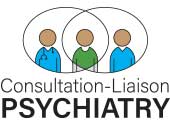Understanding the Breadth and Depth of C-L Psychiatry: Decisional Capacity Assessments
Abstract
This article is one of a series coordinated by APA’s Council on Consultation-Liaison Psychiatry and the Academy of Consultation-Liaison Psychiatry.

A decisional capacity (DC) assessment is a common referral to a consultation-liaison (C-L) psychiatrist. Such assessments require the C-L psychiatrist to have a systematic approach when evaluating DC and to have an awareness of different medical illnesses impacting a patient’s ability to understand and appreciate the consequences of accepting or declining a particular intervention. This is especially important for complex cases at the intersection of legal and ethical boundaries, often requiring psychiatrists to be aware of institutional policies and jurisdictional legislation. The following clinical case highlights the role a C-L psychiatrist can play in DC assessments.
Case Study
Mr. B is a 77-year-old man with history of hypertension, hyperlipidemia, essential tremor, mild cognitive impairment, and major depressive disorder (MDD) and was admitted to the hospital with chest pain. An angiogram revealed complex three-vessel coronary artery disease; coronary artery bypass grafting was recommended.

After Mr. B told the cardiovascular (CV) surgeon that he “would like to think about it for a few days,” the CV surgeon consulted the C-L psychiatrist to help assess Mr. B’s ability to consent to cardiac surgery. The surgeon expressed concern that depression and cognitive impairment could be impairing Mr. B’s decisional capacity, leading to treatment delay.
When interviewed by the C-L psychiatrist, Mr. B explained that vascular disease can cause “parts of the heart or brain to die if there is no blood flow.” He understood that artery bypass grafting re-routes blood flow to impaired areas of his heart but described the only risk to surgery as “I might die.” He understood that stenting or medical treatment would be less effective due to the complexity of the lesions. Mr. B said he wanted to “not have chest pain,” but he was unable to describe what long-term follow-up, lifestyle changes, and/or medications were needed for long-term success. He said that his wife would serve as his surrogate decision maker, if needed, because, “we have been married for 40 years.”
The C-L psychiatrist evaluated Mr. B’s medical history and medications. He was on paroxetine 20 mg/day for depression and topiramate 100 mg/day for depression and the essential tremor, respectively. He did not report current depressive symptoms, and he had minimal depressive symptoms on the Patient Health Questionnaire-9. He had a pleasant, nonanxious, nonmelancholic affect. His Montreal Cognitive Assessment (MoCA) score was 20/30; he lost points across several domains without attentional fluctuations.

Based on APA’ s resource document on DC, the C-L psychiatrist focused on the specific DC question while using the four Appelbaum and Grisso factors pertinent to the proposed intervention: understanding, appreciation, sound reasoning, and expressing a consistent choice. The psychiatrist also completed a comprehensive medical assessment, which can be supplemented using validated rating scales.
Mr. B understood the index illness, the affected organ systems, the proposed procedure, and other treatment options. He knew that he “might die” but did not mention the risks of graft failure, bleeding, infection, or anesthesia. He appreciated that surgery could alleviate his chest pain, but he could not reason through longer-term risks and benefits and did not express a consistent choice regarding surgery. He identified his spouse as surrogate decision maker should he become incapacitated.
After completing an evaluation, the C-L psychiatrist may have a role in clinical interventions to help improve DC based on the clinical findings. Mr. B had a history of a depressive disorder, which was not contributing to his impaired DC, as mood, affect, and objective screenings were negative for current depression-related findings. Mild to moderate depressive disorder is unlikely to lead to impaired decisional capacity, while neurocognitive disorders are far more highly correlated with diminished decisional capacity. He was at risk for developing delirium and worsening cognitive impairment due to vascular disease, both of which can be exacerbated by certain medications and surgical interventions.
The C-L psychiatrist recommended stopping topiramate and paroxetine, which are known to affect cognition. After taking into account side-effect profiles, risks of bleeding, and drug-drug interactions, mirtazapine 15 mg nightly was recommended in place of paroxetine. Since the recommendation
for surgery was “urgent” but not “emergent,” the psychiatrist recommended modifying the consent process to include both a written and verbal discussion, repeating the consent process daily, and prioritizing surrogate decision maker identification. With these interventions, Mr. B was able to reason through long-term risks and benefits of surgery and consistently express a choice to have surgery. He progressed through surgery, recovery, and rehabilitation without setbacks.
C-L psychiatrists have important roles in DC consultations: derive a comprehensive clinical formulation, identify and intervene on any modifiable risk factors that impair decisional capacity, and liaison with the consulting team to implement recommendations so that patients can have optimal medical and surgical results. In this case, the C-L psychiatrist not only initiated clinical interventions that improved Mr. B’s decisional capacity but also mitigated Mr. B’s risk of delirium after the artery bypass grafting procedure, preserved his cognitive function, and modified treatment for his recurrent MDD. All of these interventions can have positive implications immediately after surgery and also generate positive, long-term health outcomes that go beyond the initial C-L consultation. ■
References
Kahn DR, Bourgeois JA, Klein SC, Iosif AM: A Prospective Observational Study of Decisional Capacity Determinations in an Academic Medical Center. International Journal of Psychiatry in Medicine 2009; 39:405-415.
Bourgeois JA, Tiamson-Kassab M, Sheehan KA, Robinson D, Zein M: Resource Document on Decisional Capacity Determinations in Consultation-Liaison Psychiatry: A Guide for the General Psychiatrist. American Psychiatric Association 2019.
Bourgeois JA, Cohen MA, Erickson JM, Weintraub Brendel R: Decisional and Dispositional Capacity Determinations: The Role of Neuropsychiatric Illness and an Integrated Clinical Paradigm. Psychosomatics 2017; 58:565-573.
Nevels RM, Gontkovsky ST, Williams BE: Paroxetine—The Antidepressant From Hell? Probably Not, but Caution Required. Psychopharmacology Bulletin 2016 Mar 1; 46(1):77-104.
Mula M. Topiramate and Cognitive Impairment: Evidence and Clinical Implications. Therapeutic Advances in Drug Safety 2012 July 26; 3(6):279-289.



